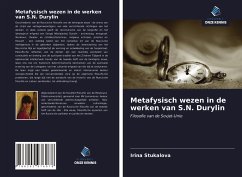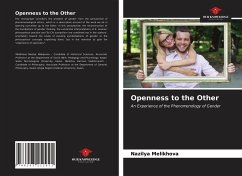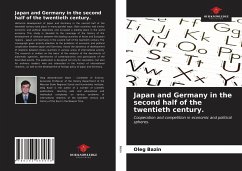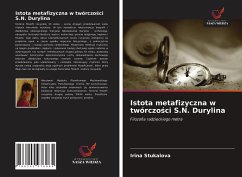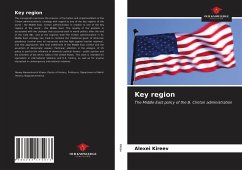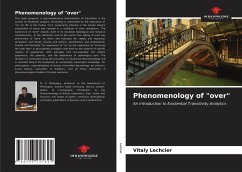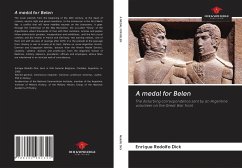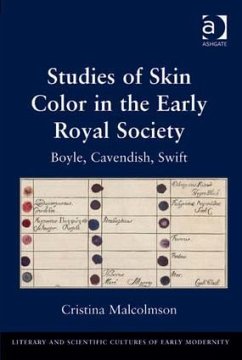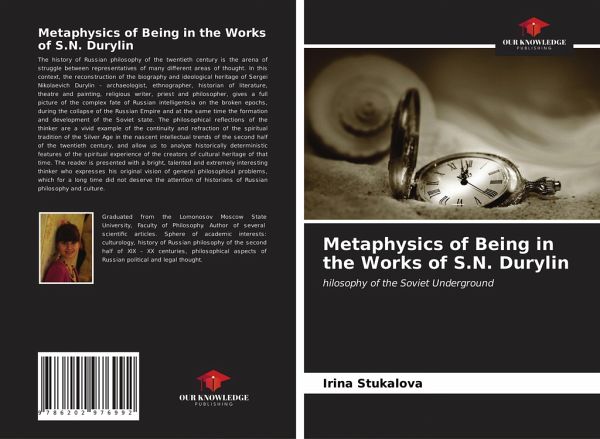
Metaphysics of Being in the Works of S.N. Durylin
hilosophy of the Soviet Underground
Versandkostenfrei!
Versandfertig in 1-2 Wochen
18,99 €
inkl. MwSt.

PAYBACK Punkte
9 °P sammeln!
The history of Russian philosophy of the twentieth century is the arena of struggle between representatives of many different areas of thought. In this context, the reconstruction of the biography and ideological heritage of Sergei Nikolaevich Durylin - archaeologist, ethnographer, historian of literature, theatre and painting, religious writer, priest and philosopher, gives a full picture of the complex fate of Russian intelligentsia on the broken epochs, during the collapse of the Russian Empire and at the same time the formation and development of the Soviet state. The philosophical reflect...
The history of Russian philosophy of the twentieth century is the arena of struggle between representatives of many different areas of thought. In this context, the reconstruction of the biography and ideological heritage of Sergei Nikolaevich Durylin - archaeologist, ethnographer, historian of literature, theatre and painting, religious writer, priest and philosopher, gives a full picture of the complex fate of Russian intelligentsia on the broken epochs, during the collapse of the Russian Empire and at the same time the formation and development of the Soviet state. The philosophical reflections of the thinker are a vivid example of the continuity and refraction of the spiritual tradition of the Silver Age in the nascent intellectual trends of the second half of the twentieth century, and allow us to analyze historically deterministic features of the spiritual experience of the creators of cultural heritage of that time. The reader is presented with a bright, talented and extremely interesting thinker who expresses his original vision of general philosophical problems, which for a long time did not deserve the attention of historians of Russian philosophy and culture.




